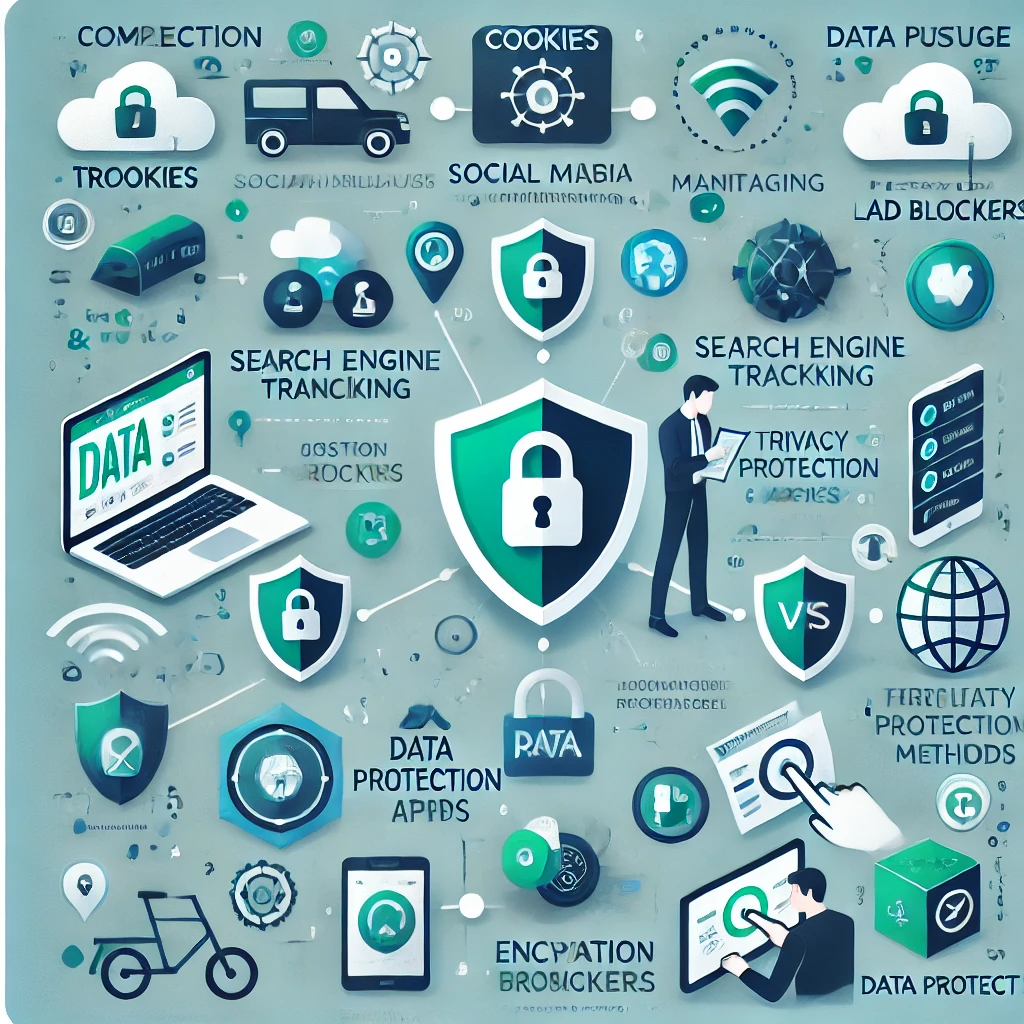
How Companies Use Your Data – And How to Protect Yourself
How Your Data Is Collected
Every time you browse the internet, sign up for a service or use an app, you leave a digital footprint. Companies collect this data in various ways, including:
- Tracking Cookies & Pixels – Websites use cookies and tracking pixels to monitor your activity and serve targeted ads.
- Social Media Activity – Platforms like Facebook, Instagram, and X (formerly Twitter) track your likes, shares, and interactions.
- Search Engine Queries – Google, Bing, and other search engines log your searches to improve their algorithms and serve relevant ads.
- Online Purchases – Retailers collect data about what you buy, how often you shop, and your spending habits.
- Location Data – Many apps track your location, often in real-time, to provide location-based services or advertisements.
- Public Records & Third-Party Data Brokers – Companies buy and sell user data, often compiling detailed profiles on individuals from multiple sources.
How Your Data Is Used
Once collected, your data is used in several ways:
- Targeted Advertising – Advertisers use your browsing history and interests to serve personalised ads.
- Personalised Content – Streaming services, news sites, and search engines tailor content to your preferences.
- Market Research & Analytics – Companies analyse customer behaviour to improve products and services.
- Data Sharing & Selling – Many organisations sell or share user data with third-party companies.
- Risk Assessment & Credit Scoring – Financial institutions use data to assess your creditworthiness and risk profile.
How to Protect Your Data
Protecting your data requires awareness and proactive steps. Here’s what you can do:
1. Adjust Privacy Settings
- Review and modify privacy settings on social media and other online accounts.
- Limit who can see your posts and personal information.
2. Use Privacy-Focused Tools
- Brave Browser – https://brave.com
- Firefox (Enhanced Tracking Protection) – https://www.mozilla.org/en-US/firefox/
- Tor Browser – https://www.torproject.org/
- DuckDuckGo (Private Search Engine) – https://duckduckgo.com
- Startpage – https://www.startpage.com
- Mojeek – https://www.mojeek.com
3. Manage Cookies & Tracking
- uBlock Origin (Ad & Tracker Blocker) – https://ublockorigin.com
- Privacy Badger – https://privacybadger.org
- Ghostery – https://www.ghostery.com
- Regularly clear cookies and browser history.
- Opt out of third-party cookies where possible.
- Use private browsing or incognito mode when necessary.
4. Limit Data Sharing
- Be mindful of what information you share online.
- For third-party sites, avoid using social media logins (e.g., “Log in with Facebook/Google”).
- Unsubscribe from unnecessary email lists.
5. Secure Your Devices & Accounts
- ProtonVPN – https://protonvpn.com
- Mullvad VPN – https://mullvad.net
- NordVPN – https://nordvpn.com
- Use strong, unique passwords for each account and enable two-factor authentication (2FA).
- Keep software and apps updated to patch security vulnerabilities.
- Use a reputable VPN to encrypt your internet connection, especially public Wi-Fi.
6. Be Cautious with Apps & Permissions
- Review app permissions and revoke unnecessary access.
- Download apps only from trusted sources.
- Delete apps you no longer use.
7. Opt Out Where Possible
- Use opt-out tools like YourAdChoices (for online ads) – https://optout.aboutads.info
- Services like 192.com (for public records removal in the UK) – https://www.192.com
- Request data deletion from companies that hold your information using GDPR rights in the UK and EU.
8. Encrypted Messaging Apps
- Signal – https://signal.org
- Telegram (Secret Chats) – https://telegram.org
- Threema – https://threema.ch
9. Secure Email Services
- ProtonMail – https://protonmail.com
- Tutanota – https://tutanota.com
- Mailfence – https://mailfence.com
10. Two-Factor Authentication (2FA) Apps
- Authy – https://authy.com
- Google Authenticator – https://support.google.com/accounts/answer/1066447
- Aegis Authenticator – https://getaegis.app
11. File Encryption Tools
- VeraCrypt – https://www.veracrypt.fr
- Cryptomator – https://cryptomator.org
- BitLocker (Windows) & FileVault (Mac) – Built-in encryption for protecting local files.
12. Data Removal & Privacy Management
- Jumbo – https://www.jumboprivacy.com
- JustDelete.Me – https://justdelete.me
- Have I Been Pwned? – https://haveibeenpwned.com
Conclusion
While it’s nearly impossible to be completely invisible online, these steps can significantly reduce your digital footprint and protect your privacy. Awareness and good digital habits are key to controlling your personal data.



